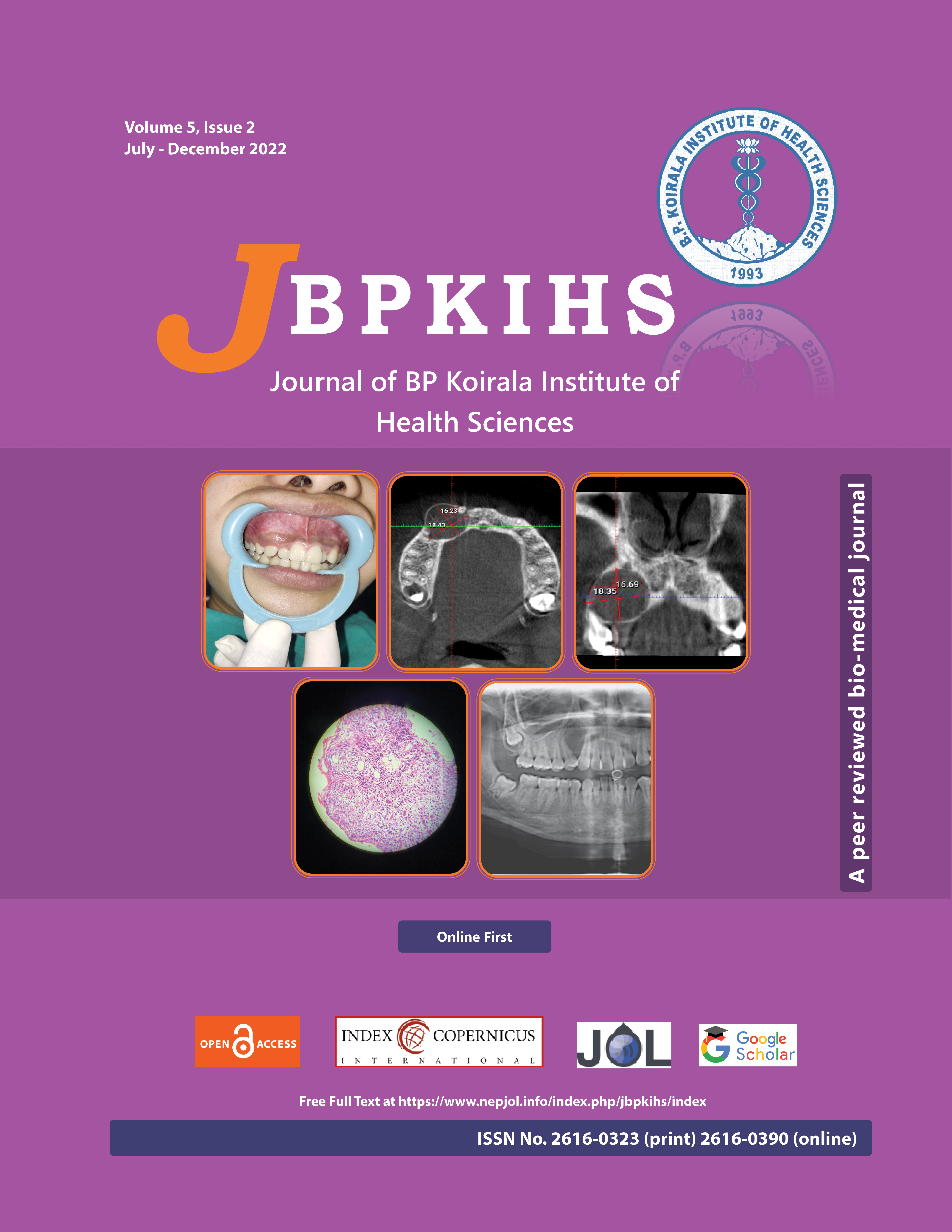Factors Associated with Postpartum Depression among Mothers Visiting a University Hospital in Western Nepal
DOI:
https://doi.org/10.3126/jbpkihs.v5i2.47052Keywords:
Edinburgh Post-partum Depression Scale, Nepal, Post-partum depression.Abstract
Background: Postpartum depression (PPD) is a grave problem posing various complications in mothers and their children. We aimed to assess the prevalence and predictors of PPD among women attending a university hospital in western Nepal.
Methods: This institution based cross-sectional study enrolled 218 postpartum (< 12 weeks post-delivery) mothers either admitted in the in-patient-units of Obstetrics department or visiting Immunization clinics from February to July 2020. Purposive sampling technique was used. The presence of PPD was assessed by using Nepali version of Edinburgh Post- partum Depression Scale. A face-to-face interview was conducted. Mothers with mental disorders, hearing impairment and migrants were excluded. The predictors of PPD were determined by multivariate analysis.
Results: PPD affected 39% of women. Multivariate binary logistic analysis showed that PPD was associated with nuclear family (AOR: 6.74, 95% CI: 3.00-15.12), husband consuming alcohol (AOR: 2.47, 95% CI: 1.18-5.18), and preference of boy child (AOR: 2.93, 95% CI: 1.32-6.50). However, planned pregnancy (AOR: 0.23, 95% CI: 0.11-0.47), vaginal delivery (AOR: 0.37; 95% CI: 0.17-0.81), male baby (AOR: 0.33; 95% CI: 0.16-0.68), and presence of husband throughout pregnancy (AOR: 0.31; 95% CI: 0.10-0.92) were found to be negatively associated with PPD.
Conclusion: The prevalence of PPD was common and was positively associated with nuclear family, male child preference and alcohol consuming husband and negatively associated with planned pregnancy, vaginal delivery, male baby, and presence of husband throughout pregnancy.
Downloads
Downloads
Published
How to Cite
Issue
Section
License
Copyright (c) 2022 Journal of BP Koirala Institute of Health Sciences

This work is licensed under a Creative Commons Attribution-NonCommercial-NoDerivatives 4.0 International License.
This license enables reusers to copy and distribute the material in any medium or format in unadapted form only, for noncommercial purposes only, and only so long as attribution is given to the creator.




